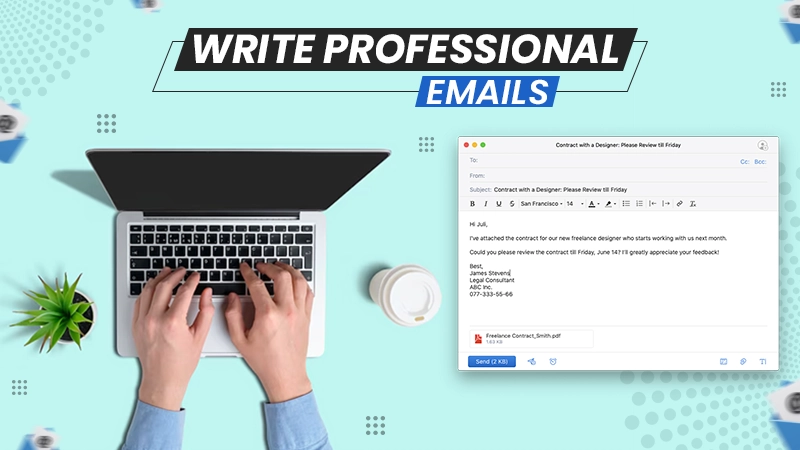
Whether in business or at work, it is critical to communicate precisely and operate at the professional level. For a lot of businesses, emails are the primary means of communication, increasing the value of professional emails in such environments.
Professional emails contain elements that appeal to readers and create a sense of proficiency. Would you be interested in an email from a reputable business platform with numerous typos?
That’s why, it is critical to improve your English communication skills, analyze your audience, and consider several other factors when writing professional emails. In this article, we will be sharing with you the ultimate guide on how to write a professional email that will leave an impact on your readers.
How to Write Professional Emails? [13 Useful Tips]

Writing is a skill that requires a lot of attention to detail, correct choices of words, and proper flow of sentences. The same goes for writing a professional email with some common elements; adhering to that will make your email look more authentic.
Here are some of the best tips for writing well-structured professional emails that can help you level up your skills for professional success:
Analyze your Audience
The first and foremost thing you have to do as a writer is analyze who you are writing to. It is critical because your tone cannot be sarcastic while writing to your seniors or casual when announcing an offer to customers.
So, identify your audience first and the purpose behind the email, then draw a rough sketch of the points you want to cover and pick the right tone according to them.
Keep it as Short as Possible

Nobody is interested in reading the long mail, even if the email contains major consequential information. Always stick to the point, cover whatever is necessary, and focus on your choice of words.
Try not to extend the sentences beyond 3–4 lines; anything more than that will make an email look unreadable.
Start with Greeting
Whenever you send an email, always greet the recipient with a positive gesture. Start with something like:
Dear [Recipient Name]
“I Hope this email finds you well”, or start with “I hope you are doing well.” |
Get your creative brain into action and think of something that makes the receiver cheerful and should align with the agenda of the mail. If you are writing to warn or terminate someone, you cannot write, ‘I hope this email finds you well’ or ‘I hope you had a wonderful day’.
Mention the Main Agenda in the Subject

In the case of email marketing, if your subject is well-constructed and captivating, the chances of getting your mail clicked are very high. Many businesses follow the clickbait strategy or manipulate the words to get the attention of their readers.
But if you’re writing an email to someone at your workplace, make sure you have mentioned the reason for sending the email in the subject line.
A professional email example of a strong subject line is:
| “Monthly Presentation: Meeting at 2:00 PM.” |
Don’t Use Slangs or Abbreviations
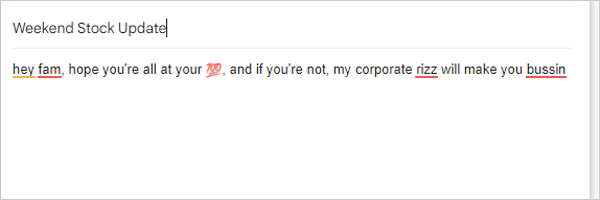
Avoid using slang terms in your mail because it reduces professionalism. Terms like drip, bussing, lit, etc. are popularly used among teenagers or limited to specific regions. It can create confusion among readers that will hamper your conversation.
Also, never use abbreviations in your email; it is an unwritten law of emails that has been followed for decades.
Try to Add Pointers
Adding pointers will suddenly change how your email looks. The most essential aspect of any professional email is that the message and content are nicely organized. An email written in pointers will always look good compared to an email written in paragraphs.
For example, if you are writing an email to procure documents of a candidate, mentioning the list in bulletin points will look more precise than writing in sentences.
Please share the following documents: Address Proof, Identity Proof, Qualification Certificates, experience letter, and a photograph.
OR
Please share the following documents: - Address Proof
- Identity Proof
- Qualification Certificates
- Experience letter
- Photograph
|
With the above example, you can see the difference and effect that writing in bullet points has created.
Don’t Mention Unnecessary Details
Writing a complaint email to a firm or customer care team, issuing disciplinary action against employees, or even filing an e-complaint to government bodies via mail requires the sender to mention a complete scenario.
In such a situation, always stick to the point and don’t create any sort of story while writing the email. In complicated scenarios where you are required to present the whole detail, try to cut it short and mention the main highlights; this will help your email look more professional.
Double Check the Attached Document
Many senders mistakenly send the wrong file attached to the mail. Always cross-check your attached documents and avoid getting into a situation where you are required to send the mail again.
This leaves a bad impression in front of others and makes your email look less professional.
Include a Closing Statement or Remark
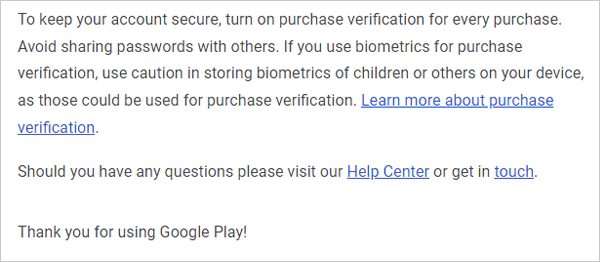
After mentioning all the necessary details and the reason for sending the mail, do include the closing lines. Whether you are sending mail on behalf of an organization or yourself, this small line will have an impact on the reader.
It could be something like, “In case of any query, feel free to contact me” or “You can reach out to me if you have any confusion”. This creates a personal touch and the recipient may feel gratified. Apart from these, you can modify the lines based on the reason for the email.
Add Signature at Last
Moving forward with how to write professional emails, this one is the main element that gives a professional touch. Adding your signature is widely practiced in many organizations; it includes your name, designation, company name, and phone number. This will create the authenticity of an email, as it is widely viewed as credible mail.
An example of an email signature:
Respectfully
Jia Jones
Barron PVT ltd
contactjia@barron.com
Don’t Use Emoji’s
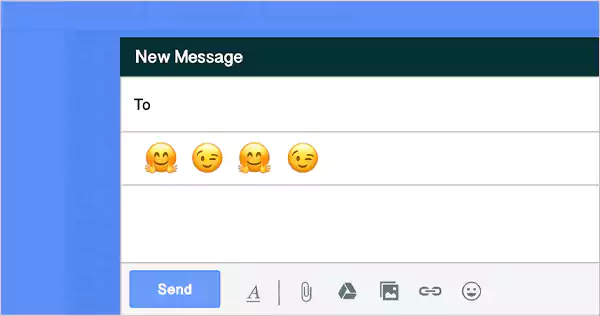
The use of emojis is limited to informal text messages and social media captions. While writing professional emails or even texting someone for formal reasons, you should avoid using emojis.
Sending emojis represents casual communication that is done outside the workplace. Therefore, emojis should not be included in your email.
Highlight the Important Details
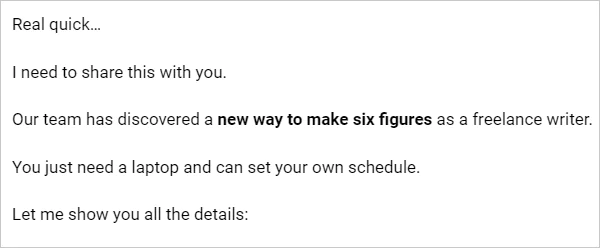
If you are required to write long paragraphs that cannot be converted into bulletin points, make the important details bold. This will highlight the significant part and make the email look more captivating for readers.
Recipients can easily go through the mail and understand the context without the requirement of reading the entire mail.
Keep it Organized
Professional emails follow a specific flow and structure, and proper mail structure maintains decorum. Keeping it organized doesn’t only mean adding bullet points or highlighting the major parts, but also maintaining the sync.
Adhering to the tips mentioned above, you can easily add the essence of professionalism to your communication. These were some common guidelines; apart from that, you can use your creativity and make use of more professional terms in your content.
Check Out: Effective Communication: Writing, Design, and Presentation Specialization
Things to Consider After Writing Professional Emails
Professional mail is all about choosing the correct tone and language with a blend of organized structure. Once your email is prepared, proofread it before hurrying to click the send button.
- At your workplace, reach out to the recipient once you have sent the mail to avoid any sort of confusion due to technical jargon, which prevents a waste of effort.
- Try to use Cc and Bcc if you are sending an email to multiple people.
- The recipient is most annoyed when the wrong documents are attached, so, as previously stated, take care of that as well.
- Make sure your email looks clean and organized. After writing 4-5 lines, leave a space, and then continue to the next one.
- Try using grammar tools to avoid typos or grammatical mistakes.
Additionally, don’t forget to reply to emails on time, which will increase your credibility and help you maintain a healthy professional attitude.
Also Read: How to use ChatGPT and Generative AI to help create content
How is Writing Professional Mail Helpful?
Many organizations follow professionalism in conveying messages. It will help you adhere to their rules and policies; apart from that, professional mail helps you with the following:
- It helps to make your email stand out to HR from the pool of candidates.
- More customer engagement through email marketing.
- Improves your image in front of clients.
- It makes communication between two parties better and removes any sort of language or technical jargon.
- It enhances credibility, especially if you are promoting your brand.
Writing crisp and precise messages saves the reader’s time and also builds positive relationships. It also creates a sense of competence and integrity.
Final Words
Make sure to value other’s time and reply to them promptly. This is something that is not related to writing well-structured mail but is very important to create goodwill between two parties and ensuring your professional development.
Overall, sticking to the 13 tips mentioned above will solve your problem with how to write professional emails. Learning these email practices is a great way to be formal at any institution. This will surely help you leave a positive impression.
FAQs
Ans: Bcc stands for Blind Carbon Copy, which lets you send copies of emails to other people. On the other hand, Cc stands for Carbon Copy whose function is the same as Bcc, but the only difference is Cc is visible to others while Bcc is not.
Ans: Make sure the subject is precise and related to the purpose of sending the mail. Start your message with a greeting and then get to the point; do not write more than 50-70 words to keep it precise. Don’t forget to attach your updated CV.
Ans: The best thing you can do is to get feedback from your colleagues or friends.
Ans: The key to writing a business email is to be precise and selective with your words. Try not to add many complicated words, and always consider your audience before selecting the tone.
Ans: Writing professional emails helps you develop your communication skills. Additionally, it also increases your intellectual ability to structure your message and be exquisite with your words.
Sources: